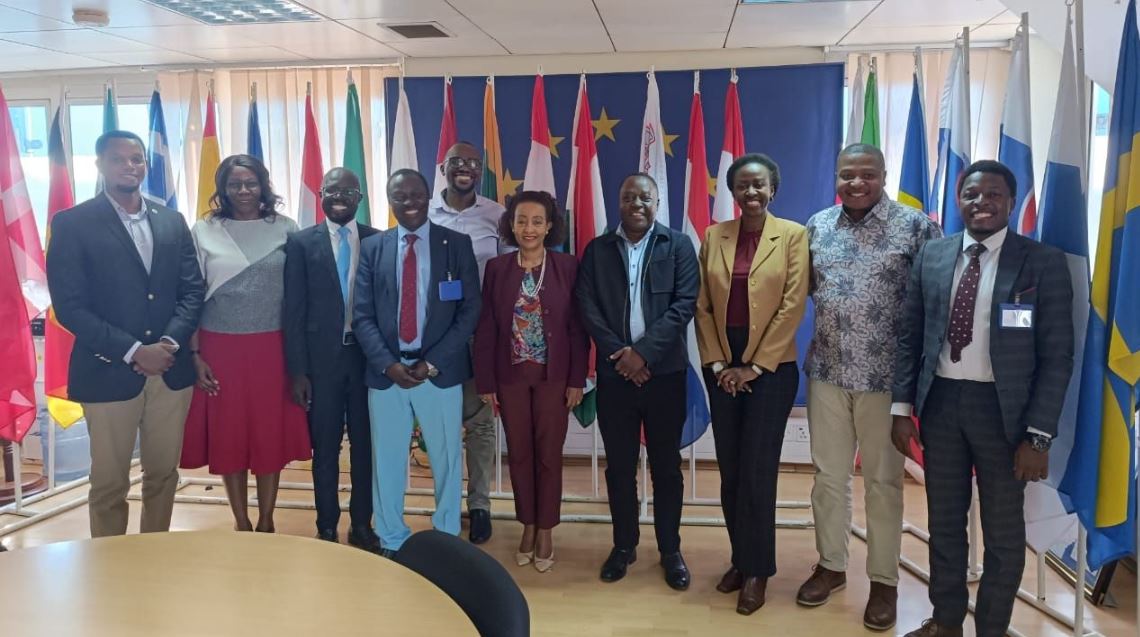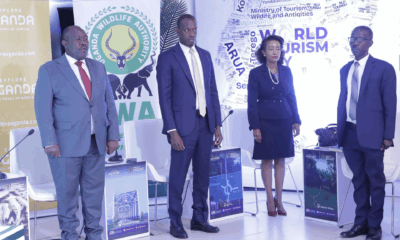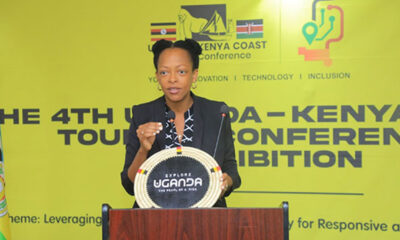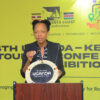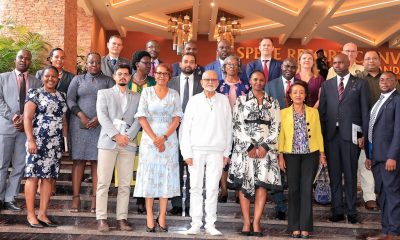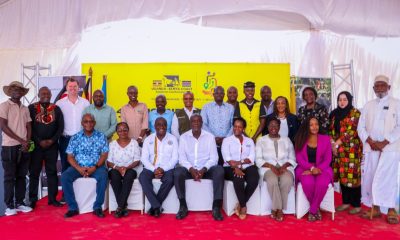Tourism
Uganda’s Tourism Sector Poised for Sustainable Revival with €15.5 Million EU Investment
Uganda’s tourism industry is set for a major transformation following a high-level strategic dialogue that brought together the Uganda Tourism Association (UTA), the European Union (EU), and over 20 global development partners in a landmark effort to address the sector’s most pressing challenges and unlock its full potential.
Hosted by Mr. Louis Lechighero, Head of Programs at the EU Delegation to Uganda, the hybrid meeting marked a significant turning point in positioning Uganda as Africa’s next sustainable tourism leader.
The EU announced a new €15.5 million (UGX 65.17 billion) support program aimed at revitalising Uganda’s tourism through public-private partnerships, focusing on skills training, digitalisation, green infrastructure, and inclusive financing. The initiative forms part of a broader EU effort to stimulate environmentally conscious, community-driven economic growth in Uganda.
“This collaboration reflects a shared commitment to make Uganda a model of sustainable tourism in Africa,” said Mr. Lechighero, emphasising the need for multi-stakeholder engagement to ensure long-term sectoral resilience.
Among the participating institutions were the World Bank, International Trade Centre (ITC), ENABEL, UNESCO, UNCDF, TradeMark Africa, and CBI, all of whom reaffirmed their support to Uganda’s tourism sector through strategic interventions and funding.
The meeting also lauded the role of Mrs. Yogi Biriggwa, Chairperson of the Uganda Tourism Association, and the recent launch of the Tourism Working Group (TWG) — a unified sector platform for collaboration and reform.
Despite being marketed as “The Pearl of Africa,” Uganda’s tourism potential remains underutilised due to multiple systemic constraints. The meeting identified several key challenges: Policy and taxation inconsistencies, Inadequate infrastructure (roads, aerodromes, accommodation), Limited access to affordable financing for SMEs, Shortage of skilled human capital
Underdeveloped and narrow product range, Weak global marketing for “Destination Uganda”, Restrictive and inefficient visa processes
These challenges have slowed sector growth, undermined investor confidence, and left Uganda trailing behind regional tourism giants like Kenya and Tanzania.
In response, the meeting produced a comprehensive blueprint for inclusive and sustainable tourism development, built around eight key priorities: Promote Ecotourism and Biodiversity Conservation
Protect natural heritage while supporting local livelihoods through environmentally conscious tourism practices. Expand Tourism Financing
Provide affordable capital to community-based and SME operators, enabling grassroots economic participation. Intensify Global Marketing
Increase Uganda’s international visibility through targeted campaigns and digital storytelling. Invest in Green Infrastructure
Develop climate-resilient roads and regional aerodromes to improve access to hidden tourism gems. Streamline Business Regulations. Improve Uganda’s investment climate by simplifying procedures and promoting responsible private investment. Diversify Tourism Products. Introduce niche experiences such as agro-tourism, adventure tourism, and cultural circuits to appeal to global travel trends.
Develop Emerging Tourism Circuits, including: Elgon–Sipi–Karamoja, Kabarole–Rwenzori–QENP, Greater Kampala Metropolitan Area, Albertine Rift Region, Kisoro–Lake Bunyonyi–Bwindi. Accelerate Sector Digitisation
Leverage digital tools to enhance transparency, access to markets, and operational efficiency.
The dialogue closed with a joint commitment to transform Uganda’s tourism into a sustainable driver of development, anchored in community empowerment, climate resilience, and cultural pride. “Tourism is not just about visitors—it’s about people, prosperity, and preservation,” said Mrs. Biriggwa. “With the right partnerships, Uganda can become a leading destination for eco-conscious travellers worldwide.”
As the country embarks on this new journey, the multi-partner effort marks a defining moment for Uganda’s place on the global tourism map — not just as a scenic destination, but as a benchmark for how sustainability and inclusiveness can shape the future of travel in Africa.
Comments



